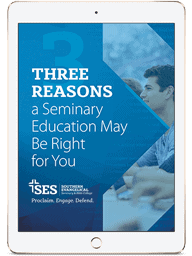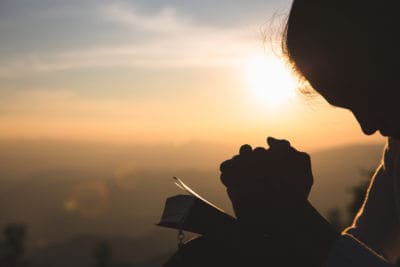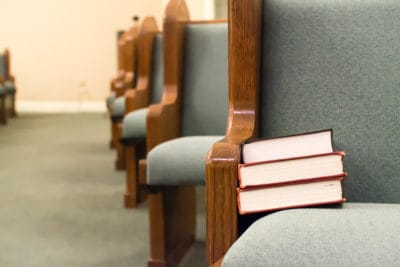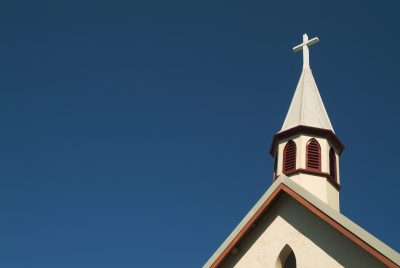Question: Why are we so shocked by the coronavirus pandemic?
Answer:
As I was surfing the internet the other day, I came across a title that arrested my attention. It read, “Global Deaths: Jan. 1-March 30, 2020” on worldometer.info. As I scrolled down the list, I was shocked by the numbers. Here they are (at the time of writing):
Abortion: 10,402,251
Communicable diseases: 3,177,081
Cancer: 2,009,990
Smoking: 1,223,439
Alcohol: 612,105
HIV/AIDS: 411,415
Traffic accidents: 330, 367
Suicides: 262,441
Malaria: 240,056
Seasonal flu: 118,980
Mothers during childbirth: 75,645
Coronavirus: 35,016
The coronavirus has upended our world here in America and in much of Europe (no one really knows about China because their government has lied repeatedly from day one including imprisoning doctors who tried to warn the world). And yet, coronavirus deaths are at the tail end of this list. Granted, worldwide coronavirus deaths have more than tripled since the end of March, which means that if deaths in childbirth and seasonal flu maintained their usual pace, then coronavirus may now be third from the bottom in worldwide causes of death. While tragic, coronavirus’ toll is dwarfed by the other causes of worldwide death.
This forced me to prayerfully ponder the question, why has the coronavirus, the ‘Great Pandemic of 2020’, caused such a complete disruption of our society and such emotional distress in our population, Christian and non-Christian alike, when there are so many more lethal causes of death bedeviling humanity? And what should Christians seek to do about it?”
One answer is, of course, that several of these — childbirth death, malaria, and communicable diseases — are much less likely to cause Americans to die than people in the second and third world because of the advanced health care systems with which we are blessed. Second, several other of these causes of morbidity — alcohol, smoking, HIV/AIDS, traffic accidents, suicide — are causes that we as individuals have at least some control over our risk or exposure. In other words, we can make decisions that at least partially protect us from being victims of these widespread causes of death. The third category — cancer and seasonal flu — while to some degree are random and non-preventable, at least can be somewhat mitigated by taking flu shots, practicing good hygiene and getting regularly prescribed health check ups and screenings such as mammograms and colonoscopies.
In other words, we at least feel we have some control over these leading causes of death and can at least partially protect ourselves by things we do. And the most lethal cause of death is almost entirely voluntary, since only about 1% of abortions involve any legitimate risks to the mother’s or the baby’s health. That means that 99% of the abortions of human babies are voluntary child sacrifices to the secular gods of material well-being, social convention, and mere convenience. The fact that so many Americans are no longer shocked and sickened by this monstrous child sacrifice indicates the extent to which our collective moral conscience has been desensitized by this mass killing over time.
The coronavirus, however, is a new, dangerous, and mysterious stranger in our midst, and we have very few ways to protect ourselves from this highly contagious, lethal interloper into our lives and the lives of our fellow Americans.
I also think this sudden peril has reminded us most vividly of our own mortality. Those of us privileged enough to live in early 21st century America can, and too often have been, lulled into a false sense of security, failing to understand that this thin veneer of modern civilization is fragile and has given us a false sense of security. How quickly we can lose our illusion of safety, our “American way of life,” and our lives.
In other words, far too many Americans, Christian and non-Christian, have been complacently “at ease in Zion” (Amos 6:1). The fiery Old Testament prophet Amos denounced his fellow Israelites for trusting their riches and their defensive fortifications, rather than letting “judgment run down as waters and righteousness as a mighty stream” (Amos 5:24) against the sin in their lives and the injustices in their society.
Having hopefully been shaken from our besetting complacency, we, as professing Christians, need to embrace this pandemic as an opportunity for spiritual renewal, revival, and awakening for ourselves as well as for our fellow citizens. We must always remember that the Apostle Paul has promised us that God is “working all things together for good for those who love Him” (Rom. 8:28). In other words, what has been devised as evil can be converted to blessing bestowed on God’s people by God’s providential power.
Recent indicators tell us that many of our fellow Americans have been newly sensitized to spiritual things by the impact of the pandemic. Anecdotal evidence suggests that people are praying more, Bible sales are up, and people are looking to spiritual resources in our society for answers and emotional sustenance, and church attendance is up — even if (or perhaps because) it is in a virtual format.
The Apostle Paul challenged the Ephesian Christians to “make the best use of time because the days are evil” (Eph. 5:16 ESV). Paul here uses the word kairos for time in its propitious, opportune moments, rather than chronos for time in its regular 24 hours a day, 7 days a week calendar sense. I believe this may well be such a kairos moment for American Christians. I believe it is our Christian duty to pounce upon this moment to redeem it for God’s redemptive purposes.
Far too many professing Christians claim Jesus as Lord, but, in reality, live as if He were merely their relationship advisor, financial consultant, or a lucky charm. The hypocrisy of too much of the American church has too often suffocated the Gospel witness and stifled discipleship and evangelism.
American Christianity at this moment has never more needed far fewer doses of telling and far larger doses of doing. Faithful witness, costly discipleship, and convictional living will quickly separate the doers from the mere talkers and will lead to the rapid un-muffling and un-muzzling of the true Gospel that transforms people’s lives and brings hope, peace, and purpose to people in times of crisis. I pray that all faithful Christ-followers will heed the call to be His salt and His light in this propitious moment. May God use each one of us as sparks to ignite the great spiritual revival and commence the great spiritual awakening that our country so desperately needs.
What better day to commit ourselves to spiritual renewal and awakening than Resurrection Day? He is risen! Have a joyous Easter!

Download Your FREE eBook!
- Reading Books and Listening to Talks is Not Enough
- Not All Apologetics Methods Are Created Equally
- A Degree is More Than a Piece of Paper









